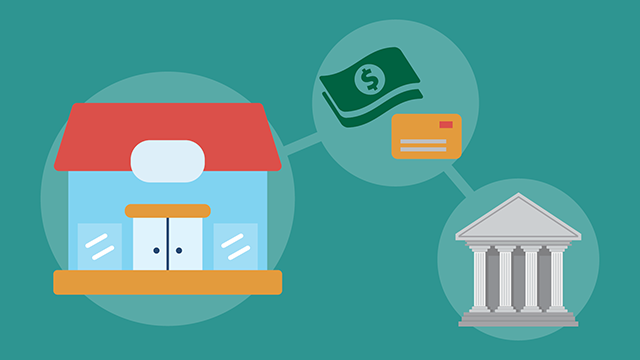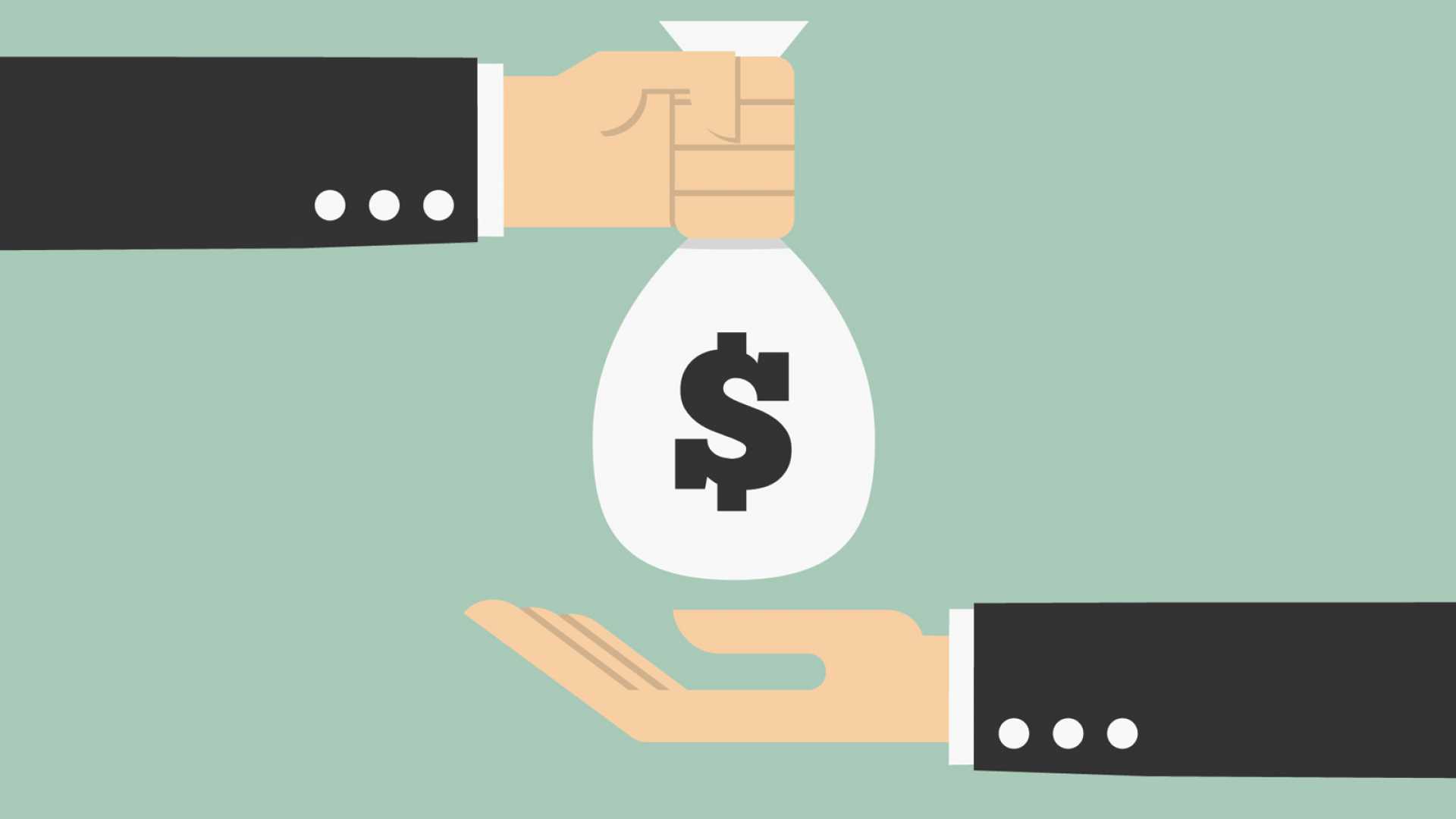Why Pre Approval Student Loans Can Make University A Lot More Inexpensive
Why Pre Approval Student Loans Can Make University A Lot More Inexpensive
Blog Article
The Role of Credit History in Securing Small Company Loans for Entrepreneurs
In the affordable landscape of entrepreneurship, securing a bank loan usually hinges on the critical element of credit rating. These scores function as a numeric depiction of a business owner's credit reliability, affecting lending institutions' decisions and the terms offered. A higher credit rating can open up doors to beneficial finance conditions, while a lower score may present significant obstacles. Yet, what specifically influences these ratings, and how can business owners purposefully boost them to enhance their possibilities of protecting crucial funding? The solution to these concerns hold the trick to unlocking prospective growth chances for local business.
Comprehending Credit Report
Credit history ratings are essential numerical depictions of a person's creditworthiness, working as a critical consider monetary decision-making for loan providers. These scores are originated from a thorough analysis of a person's credit report, encompassing elements such as payment history, credit rating usage, size of credit rating, brand-new charge account, and kinds of credit history utilized. Normally ranging from 300 to 850, greater ratings signify lower risk to lending institutions, while lower scores indicate higher danger.
The calculation of credit history is performed by credit bureaus utilizing exclusive formulas, with one of the most widely acknowledged designs being FICO and VantageScore. Each design might weigh factors slightly differently, however they all purpose to give a consistent step of credit rating risk. A strong credit report shows the person's reliability in handling debt, making timely repayments, and preserving a healthy equilibrium between debt used and available credit report.
It is essential for individuals and local business owner to understand their credit history, as these numbers can have far-reaching implications beyond individual finance. Regularly keeping an eye on one's credit record, remedying inaccuracies, and adopting audio financial routines can significantly improve credit rating ratings, thereby enhancing the individual's total financial profile and credit reliability.
Relevance for Loan Approval
Recognizing one's credit rating is foundational, as it plays a substantial role in the procedure of financing authorization for tiny organizations. Lenders make use of credit ratings as a key metric to examine the credit reliability of candidates. A strong credit rating shows a background of liable economic actions, suggesting to lenders that the applicant is most likely to pay back the loan on time. A high credit scores rating can substantially boost an entrepreneur's opportunities of safeguarding a finance with desirable terms, consisting of lower interest prices and more versatile payment choices.
In comparison, a low credit history might signify potential threat, leading lenders to either deny the funding application or impose more stringent conditions. This makes it critical for entrepreneurs to be familiar with their debt standing, as it straight impacts their capacity to access resources. In addition, credit report function as a standardized action that allows lending institutions to enhance their decision-making procedure, guaranteeing efficiency and consistency. As small companies typically call for prompt access to funds for development and sustainability, keeping a robust credit report becomes necessary. Hence, understanding and handling one's credit report is an essential component of getting ready for funding applications and attaining business success.
Variables Influencing Scores
A number of aspects add to the decision of a credit score, each playing a critical role in forming a person's credit profile. Amongst these, payment history stands out as one of the most significant, mirroring the timeliness and uniformity of financial debt payments. Lenders closely scrutinize this aspect to analyze monetary reliability. In a similar way, the quantities owed, or credit application, substantially impact scores. A high proportion of used credit scores to available debt can recommend economic overextension, adversely influencing credit reliability.
Length of credit report also aspects right into credit rating estimations, with a much longer credit report generally seen much more positively. This statistics supplies understanding right into the individual's long-term economic behavior, supplying lenders a more comprehensive perspective on their credit report monitoring skills. In addition, the kinds of credit scores being used are considered, as a mix of credit score accounts, such as rotating credit cards and installment fundings, can show the capacity to manage various economic responsibilities.
Last but not least, current debt queries may influence scores (pre approval student loans). Constant applications for new credit score can show monetary distress, therefore negatively affecting ball game. Each of these elements is vital in the thorough assessment of a credit rating, affecting an entrepreneur's ability to secure a little organization financing
Improving Your Credit Rating Rating
Improving one's credit history score is comparable to nurturing a garden; cautious focus to key website here areas can yield considerable enhancements. Repayment background makes up a substantial portion of a credit scores score; hence, establishing up automated reminders or repayments can assist preserve consistency. High credit use proportions, or the quantity of credit report used loved one to the credit report limit, can adversely influence ratings.

Finally, preserving older charge account can positively influence the ordinary age of credit report, which is one more variable in racking up models. While new debt questions ought to be lessened to prevent short-lived score dips, see it here responsible credit rating management with time will normally bring about rack up enhancement, thus boosting qualification for desirable tiny service financing terms.
Alternative Funding Choices
Navigating the world of small organization financing frequently calls for exploring different choices beyond standard small business loan. Entrepreneurs with less-than-ideal credit history scores may locate these alternatives not just much more accessible yet likewise customized to their distinct company needs. Amongst the most preferred choices are online lending institutions, which have actually multiplied in recent times. These systems generally supply faster approval procedures and more versatile terms than conventional financial institutions, frequently taking into consideration elements past credit history, such as organization performance and money flow.
In addition, microloans, usually supplied by nonprofit organizations, cater to little businesses and start-ups. They use smaller sized lending amounts with lower passion rates, making them optimal for entrepreneurs that need minimal funding.
Billing funding and merchant cash loan are additionally worth thinking about. The former involves selling superior invoices to a lending institution at a discount rate, while the last supplies a bear down future sales. Both alternatives can enhance cash money flow without the strict credit history requirements of traditional loans.
Conclusion

These ratings are obtained from an extensive evaluation of an individual's credit report background, including aspects such as settlement background, credit history utilization, length of credit report history, brand-new credit rating accounts, and kinds of credit history used (pre approval student loans). A solid credit history rating reflects the individual's reliability in taking care of debt, making timely repayments, and maintaining a healthy and balanced equilibrium between credit report made use of and offered credit history

Report this page